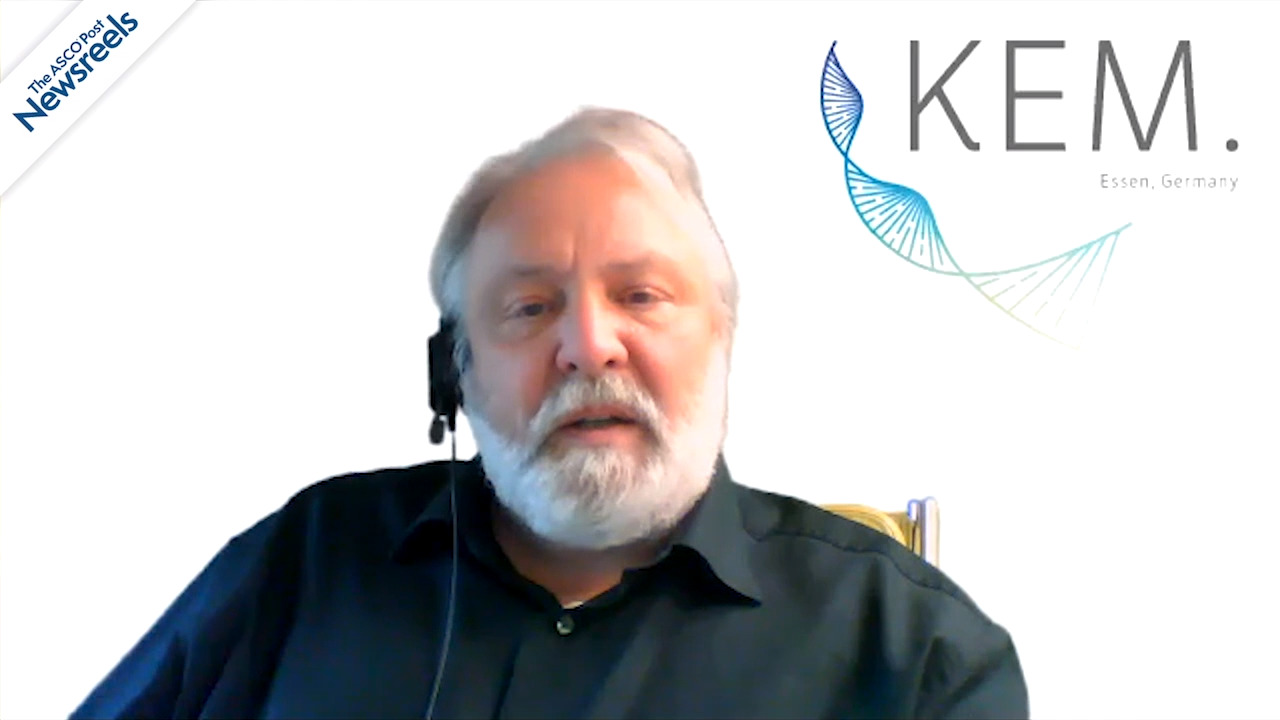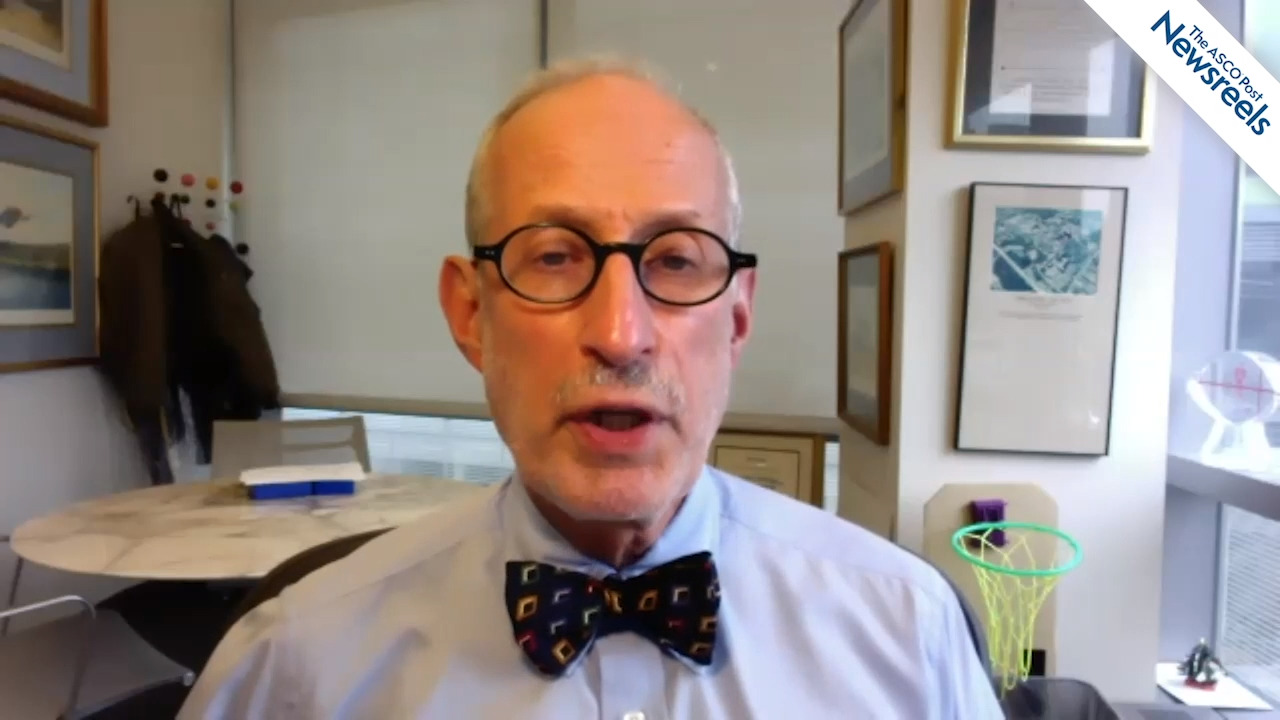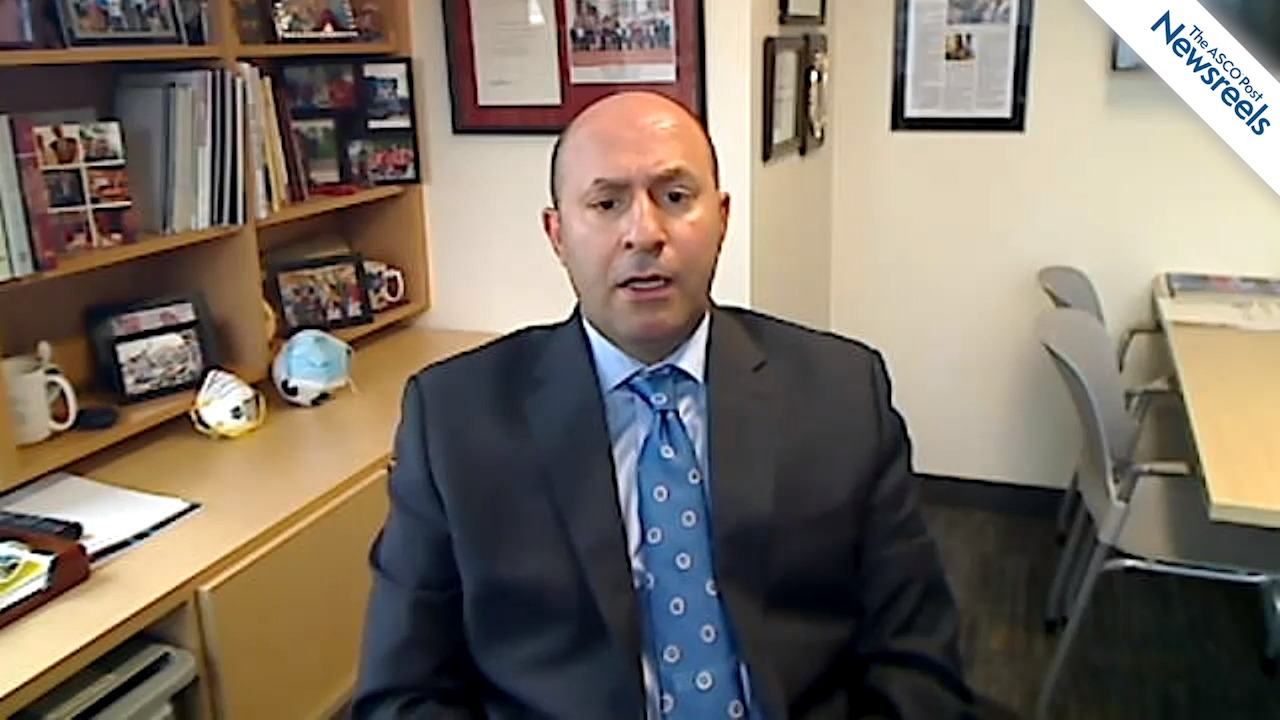Andreas Schneeweiss, MD, on Breast Cancer: Comparing Neoadjuvant Chemotherapy With Paclitaxel, Doxorubicin, and Carboplatin
ESMO Virtual Congress 2020
Andreas Schneeweiss, MD, of the Heidelberg University Hospital and German Cancer Research Center, discusses phase III survival data from the GeparOcto trial, which compared the neoadjuvant chemotherapy intense dose-dense EPC (epirubicin, paclitaxel, and cyclophosphamide) with weekly paclitaxel and liposomal doxorubicin (with or without carboplatin in triple-negative breast cancer) for patients with high-risk early breast cancer (Abstract 160O).
The ASCO Post Staff
Aditya Bardia, MD, MPH, of Massachusetts General Hospital Cancer Center, discusses results from the phase III ASCENT trial, which showed the antibody-drug conjugate sacituzumab govitecan-hziy improved progression-free and overall survival more than standard single-agent chemotherapy in patients with previously treated metastatic triple-negative breast cancer (Abstract LBA17).
The ASCO Post Staff
Alexander M. Eggermont, MD, PhD, of the Princess Maxima Center for Pediatric Oncology, discusses final results of the phase III EORTC 1325-MG/Keynote 054 trial, which confirmed a sustained recurrence-free survival benefit of pembrolizumab vs placebo in patients with resected high-risk stage III melanoma, as well as a decrease in the incidence of distant and locoregional recurrence (Abstract LBA46).
The ASCO Post Staff
Andreas du Bois, MD, PhD, of Kliniken Essen Mitte, discusses the NORA and INOVATYON studies of patients with recurrent ovarian cancer, detailing the findings for women in China with platinum-sensitive disease and women internationally who received trabectedin and pegylated liposomal doxorubicin (PLD) followed by platinum at disease progression vs carboplatin and PLD after disease progression (Abstract LBA29 and LBA30).
The ASCO Post Staff
Jeffrey S. Weber, MD, PhD, of the Perlmutter Cancer Center, NYU Langone, discusses the 4-year recurrence-free and overall survival results from the CheckMate 238 study, which showed adjuvant nivolumab continues to be an effective treatment, vs the comparator ipilimumab, for patients with resected stage III/IV melanoma (Abstract 1076O).
The ASCO Post Staff
Toni K. Choueiri, MD, of Dana-Farber Cancer Institute, discusses the first results from the phase III CheckMate 9ER trial, which suggested the combination of nivolumab and cabozantinib is safe. It showed activity in progression-free and overall survival, as well as in overall response rates and may have a place in treating patients with metastatic renal cell carcinoma (Abstract 696O_PR).





